Pregnancy vitamins in the UK are a must-have for mums-to-be, helping to support both your health and your growing baby’s development. Packed with essential nutrients like folic acid, vitamin D, and iron, these supplements ensure you’re getting everything needed for a healthy pregnancy. They’re an easy way to fill any nutritional gaps and give you peace of mind as you prepare for your little one’s arrival. Whether you’re early in your pregnancy or further along, pregnancy vitamins are a small step that makes a big difference!
Prenatal vitamins are a vital part of your pregnancy diet as they help to reduce the risk of problems with your baby's development. Plus, they can regulate your vitamin and mineral intake, helping you to have a healthy pregnancy.
Best pregnancy vitamins at a glance:
-
Best for its essential nutrients: Pregnacare Vitabiotics During Pregnancy Original, buy on here from Amazon
-
Best for baby’s development at every stage: Seven Seas Pregnancy 2 All Stages During Pregnancy, buy on here from Amazon
-
Best for affordability: Boots Folic Acid + Vitamin D Tablets, buy on here from Boots
Which supplements are suitable for pregnant women?
A UK National Diet and Nutrition Survey reported that the following nutrients are lower than recommended in the diets of some UK women of childbearing age:
Vitamins A and D, Riboflavin, Folate, Iron, Iodine, Calcium, Magnesium, Potassium, Zinc, Selenium, and Fibre.
The survey also revealed that approximately 10 per cent of women are anaemic and, depending on the time of year, 10 to 40 per cent are deficient in vitamin D.

Lucy Upton, a Specialist Paediatric Dietitian and Nutritionist, says: "While there are many steps that pregnant women can take to increase their consumption and exposure to these key vitamins, minerals, and nutrients – such as adjusting their diet or increasing time spent safely in the sun outdoors – many pregnant women might still fall short of the required nutrients.
"While supplementation with some key nutrients – including folic acid and vitamin D – is recommended in the UK for all pregnant women, others may find it beneficial to take an additional supplement to help ensure they are getting enough of other vital nutrients."
Healthy Start Vitamins
Healthy Start is a government initiative, which gives eligible mums (with children under four) and pregnant women free vouchers every week to spend on milk, plain fresh and frozen fruit and vegetables, as well as infant formula milk. You can also get free vitamins.
Nutrients provided in Healthy Start Vitamins:
• 400µg folic acid
• 10µg vitamin D
• 70mg vitamin C
Healthy Start vitamins are suitable for all pregnant women and free to those eligible through the Healthy Start scheme.
The benefits of taking vitamins in pregnancy
Taking the daily recommended 400 micrograms (mcg) of folic acid before and during pregnancy can help prevent birth defects in the baby's brain and spinal cord.
Vitamin D regulates the amount of calcium and phosphate in the body, which are needed to help keep bones, teeth, and muscles healthy.
Vitamin C is essential for tissue repair, wound healing, bone growth and repair, and healthy skin. Vitamin C also helps your body fight infections and acts as an antioxidant, protecting cells from damage.

Folic Acid
Taking supplemented folic acid is suitable for all pregnant people. Folic acid helps the body make healthy red blood cells and is found in certain foods like sunflower seeds and sprouts. Folic acid is also suitable for men to take when trying to conceive.
Benefits:
• Taking the daily recommended 400micrograms (mcg) of folic acid before and during pregnancy can help prevent neural tube defects.
• This vitamin is widely available in retail pharmacies, supermarkets, and online.
Vitamin D
Depending on the brand, you will be taking 10-25µg of vitamin D in pregnancy.
The benefits:
• Vitamin D regulates the amount of calcium and phosphate in the body, which are needed to help keep bones, teeth, and muscles healthy.
• This vitamin is widely available in retail pharmacies, supermarkets, and online.
Multi-vitamins and minerals
Nutrients provided:
• 10µg vitamin D
• B vitamins including 400µg of folic acid and vitamin B12
• Vitamins C, E and K Betacarotene (carotenoid forms of vitamin A)
• Iron, iodine, zinc, selenium, magnesium and copper
• Omega 3 fatty acids
Benefits:
• Iodine is critical for a woman’s healthy thyroid function during pregnancy.
• Iron helps blood in both the mother and baby as its function is to carry oxygen.
• Multi vitamins are widely available in retail pharmacies, supermarkets, and online.
Multi-vitamins and minerals (including calcium)
Nutrients provided:
• 10µg vitamin D
• B vitamins including 400µg folic acid and Vitamin B12
• Vitamins C, E & K Betacarotene (carotenoid forms of vitamin A)
• Calcium
• Iron, iodine, zinc, selenium, magnesium and copper
• Omega 3 fatty acids
The benefits:
• Calcium is important for pregnant women. It can help prevent women from losing their own bone density as the baby uses calcium from the mother for its own bone growth.
• Iodine is critical for a woman’s healthy thyroid function during pregnancy.
• Iron helps blood in both the mother and baby as its function is to carry oxygen.
• Multi vitamins are widely available in retail pharmacies, supermarkets, and online.
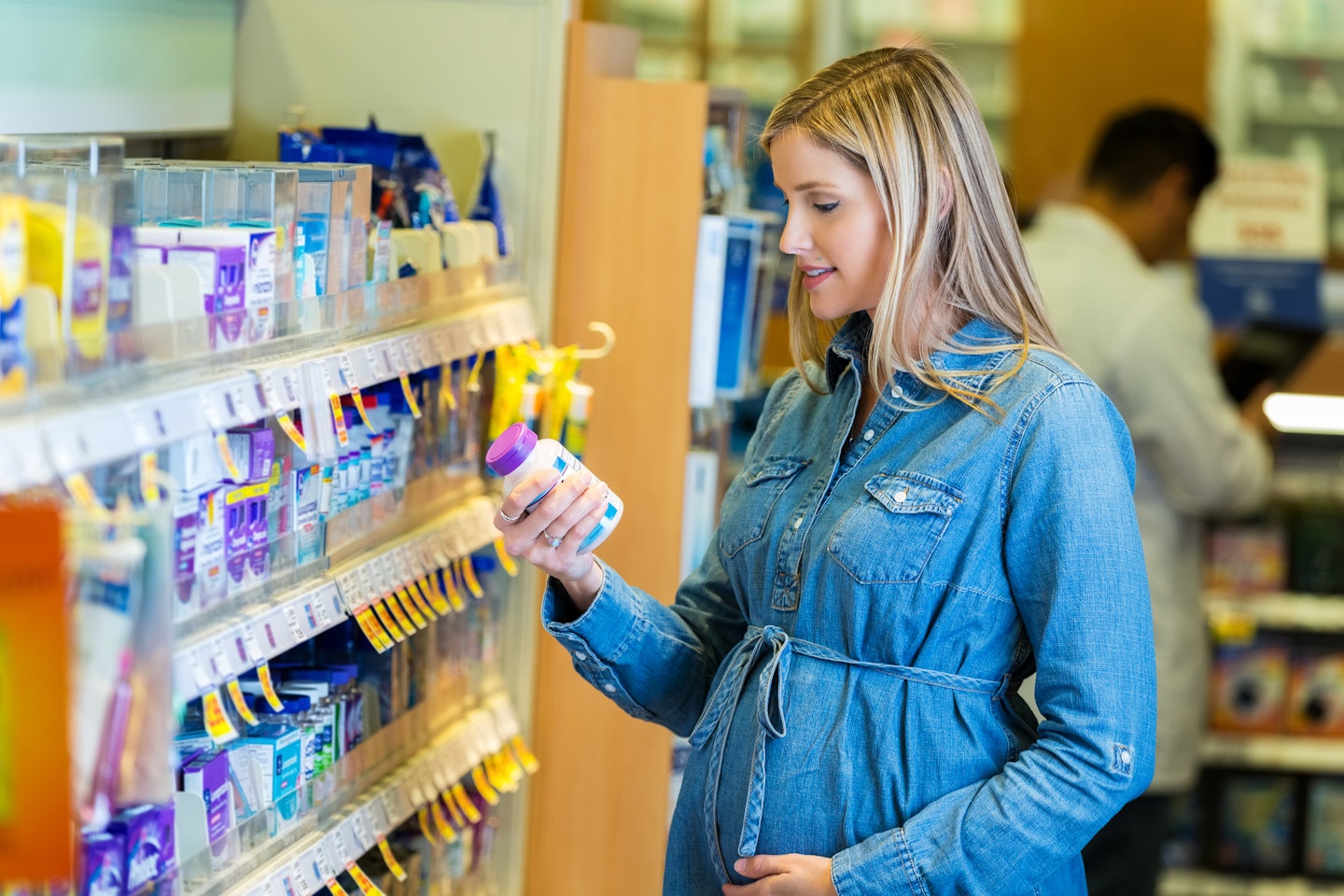
Lucy Upton recommends only buying supplements from a reliable company with robust quality control i.e. brands on sale in pharmacies. Choosing a ‘pregnancy’ labelled vitamin and mineral supplement is essential. Preparations for the general adult population are likely to contain vitamin A, which in large amounts can harm your unborn baby.
We also spoke to Wild Nutrition’s Head of Nutrition, Lorna Driver-Davies, who said: "Folic Acid (Vitamin B9 or Folate) is officially recommended to be supplemented for the first 12-14 weeks of pregnancy (the first trimester), at the dose of 400ug. Although some women might be asked to take more (if professionally recommended). This is to prevent neural tube defects such as spina bifida. Doctors and midwives normally advise they do not need to take it past 12-14 weeks (normally once you have a healthy unproblematic scan), since there can be issues related to the continuation of Folic Acid supplementation past 14 weeks.
"However, there is no safety issue associated with natural Folate (Vitamin B9 found in food or in Wild Nutrition’s supplements). Folic acid is not a natural source, it's synthetic and very different to synthetic Folic acid, in terms of the way a woman’s body and the foetus metabolise the nutrient."
"Folate as a nutrient is important for all the trimesters of pregnancy for healthy development, energy, healthy blood, mood and more and isn’t just for pregnancy - for all life stages.
"Some women have a genetic issue that means they are unable to easily convert Folic Acid in the body to Folate (this is what would normally need to happen when anyone supplements Folic Acid). Those women would be better off supplementing with a pregnancy multi-nutrient that can be used through all trimesters which contains Folate (not Folic Acid). If in doubt of genetics, the easiest step is to choose a formula that only contains natural and methylated Folate."
To help you out, we've popped together a no-nonsense guide to the best pregnancy vitamins in the UK.
Pregnancy vitamins to buy
Best for its essential nutrients
SAVE 39%
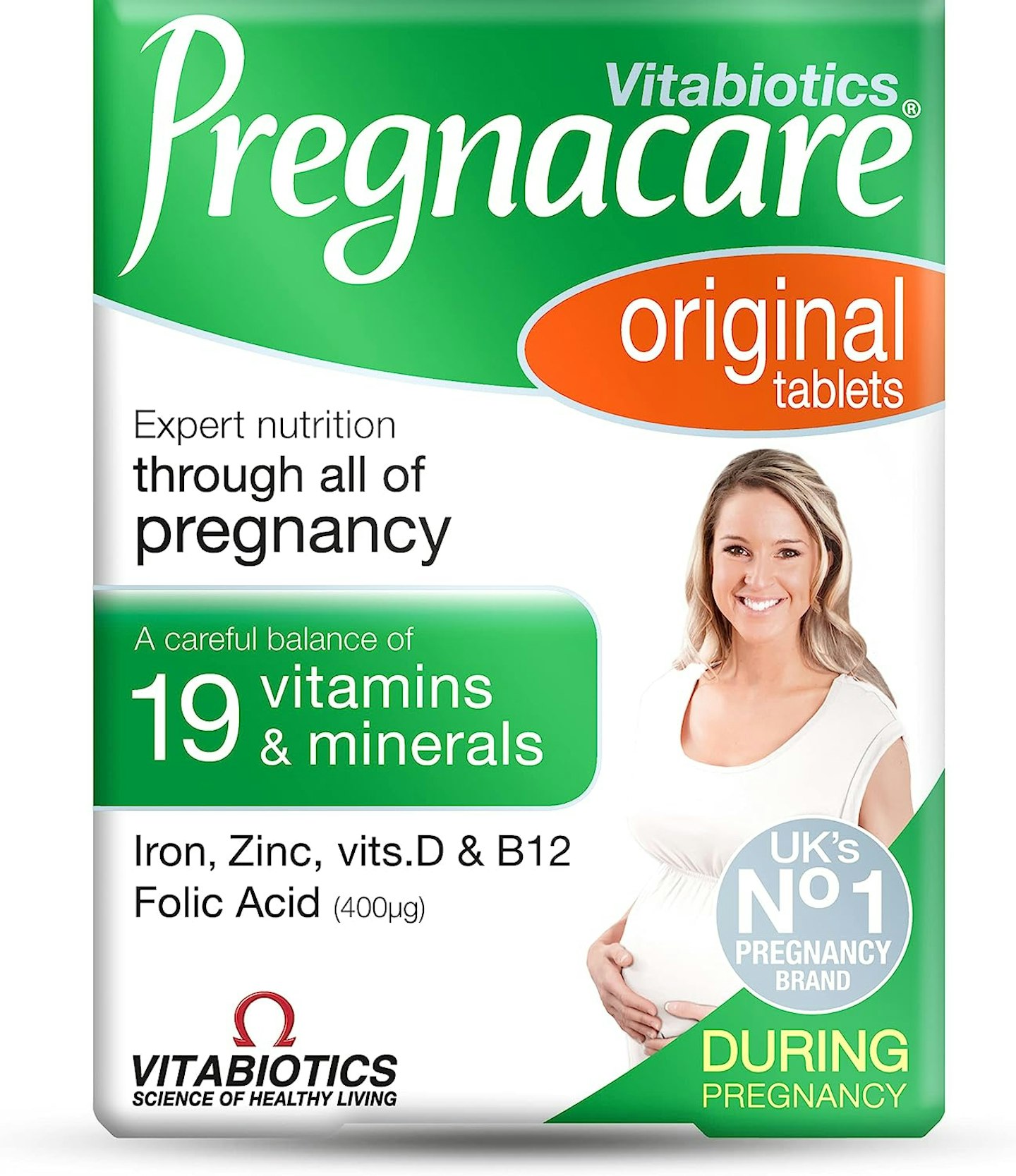 Amazon
Amazon Pregnacare Vitabiotics During Pregnancy Original is a game-changer for mums-to-be! Specially designed to support you and your baby throughout pregnancy, it’s packed with essential nutrients like folic acid, iron, and vitamin D to help your little one grow strong while keeping you feeling your best. It’s like a daily hug in a vitamin, giving you peace of mind every step of the way.
Review: "Product was delivered the next day, does exactly what it says on the box and would highly recommend during pregnancy as it contains all the vitamins needed."
Best for baby’s development at every stage
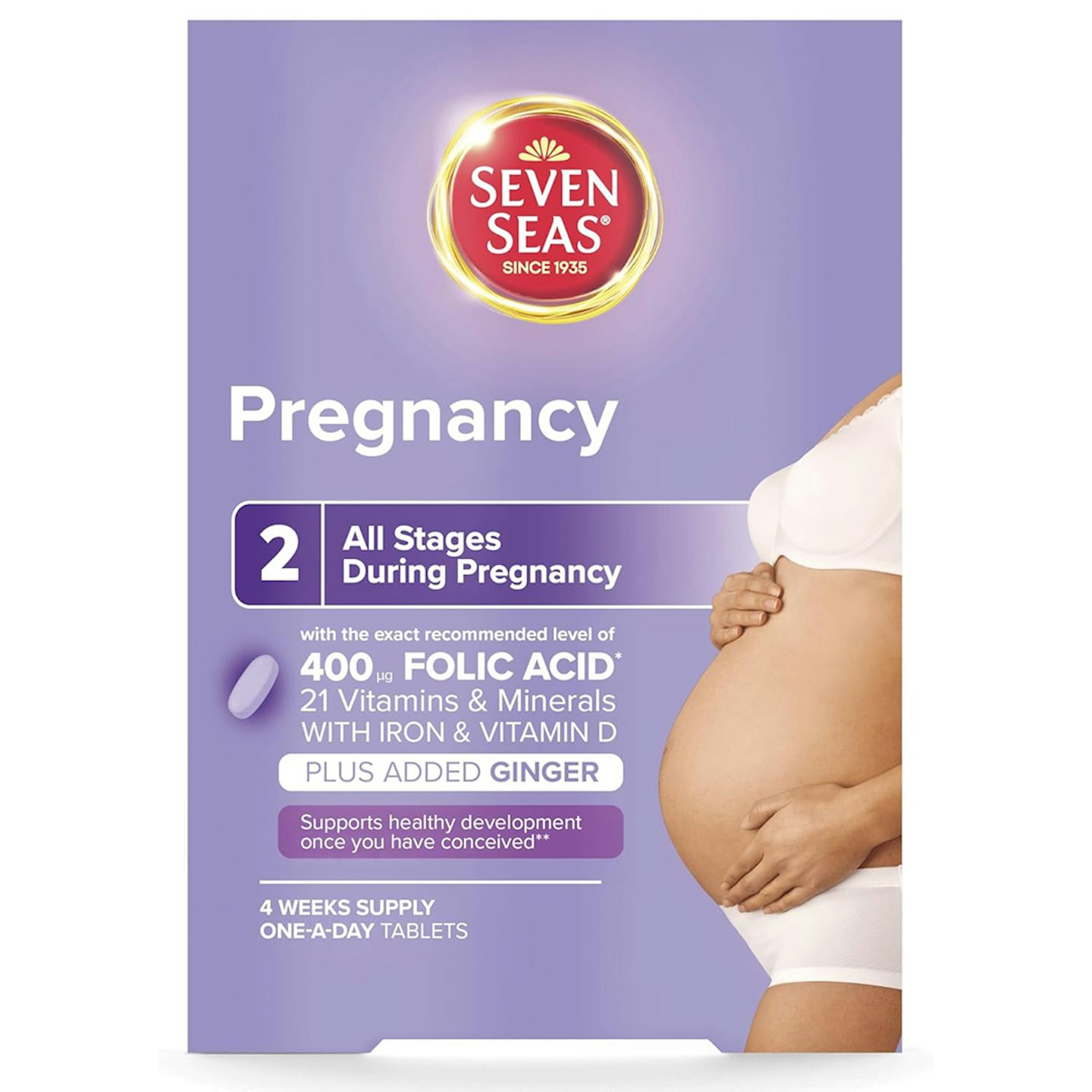 Amazon
Amazon Containing 28 tablets in one pack with a handy blister pack with ‘days of the week’ guide, this multi-vitamin from Seven Seas contains 21 vitamins and minerals including Folic Acid, Iron, Vitamins C & D, Zinc and Calcium plus ginger extract which can help with morning sickness. It supports your baby’s development at every stage while keeping you energized and healthy. Easy to take and carefully formulated, it’s like having a little nutritional cheerleader for both you and your growing bump. Healthy mum, happy baby!
Review: "Seems to be working well. Easy to take and like the days being printed on the package, can easily tell if I have taken the pill for that day. Switched to these after taking Stage 1 Trying To Conceive tablets from Seven Seas once we had a positive test and have continued to take them throughout my pregnancy for the added boost of vitamins."
Best for affordability
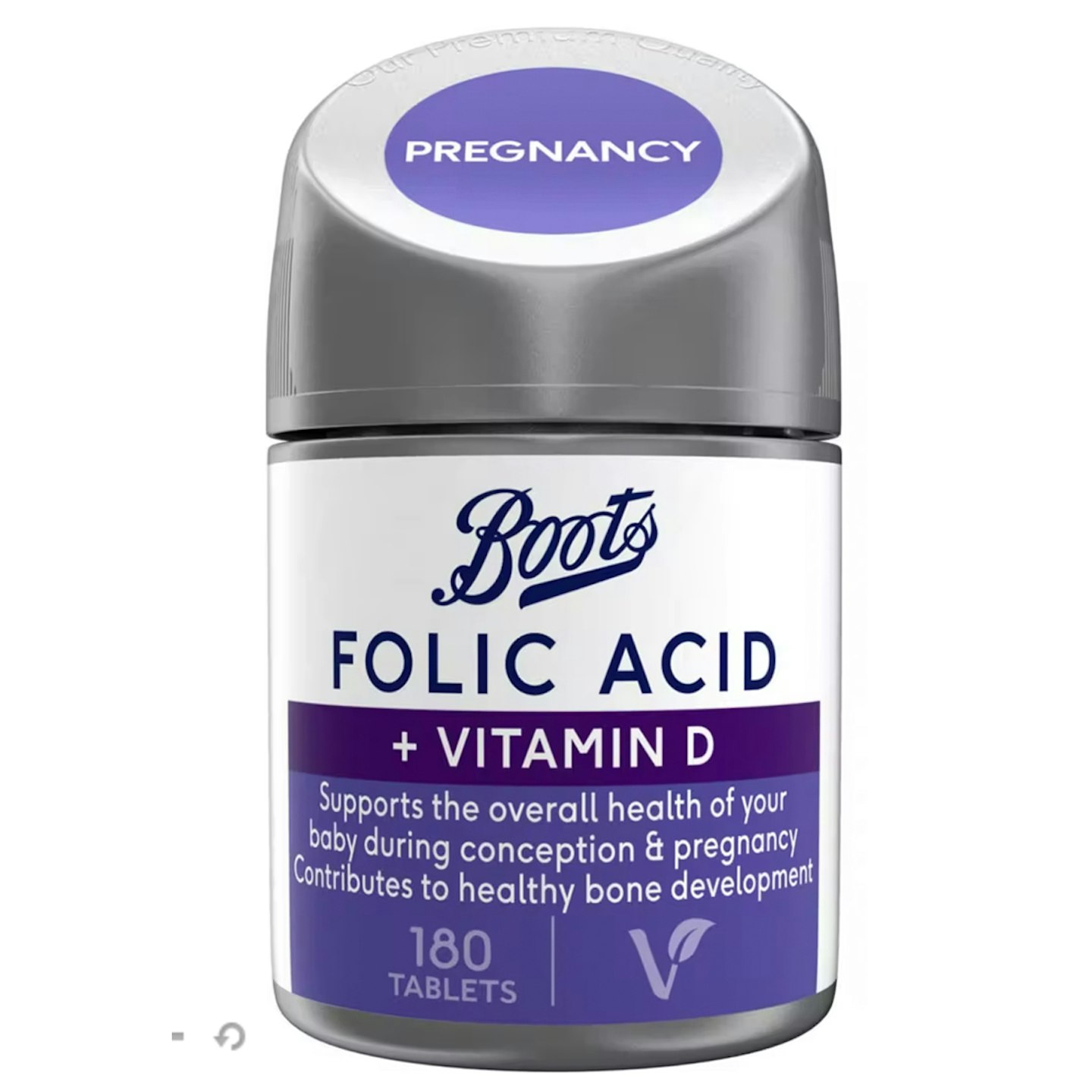 Boots
Boots www.boots.com
If you want something simple, these tablets from Boots combine Folic Acid and Vitamin D together in one supplement, containing the recommended levels for all pregnant women. They are especially ideal if you struggle with large tablets as these are super small and easy to swallow. Affordable, easy to take, and perfect for mums-to-be, they’re a daily dose of care for you and your bump!
Review: "Good quality, pills are not huge as some other brands. They are tiny and very easy to swallow. Also one pill per day is enough, some other brands tell you to take three per day which is more difficult. Price is perfect"
Best for nourishment
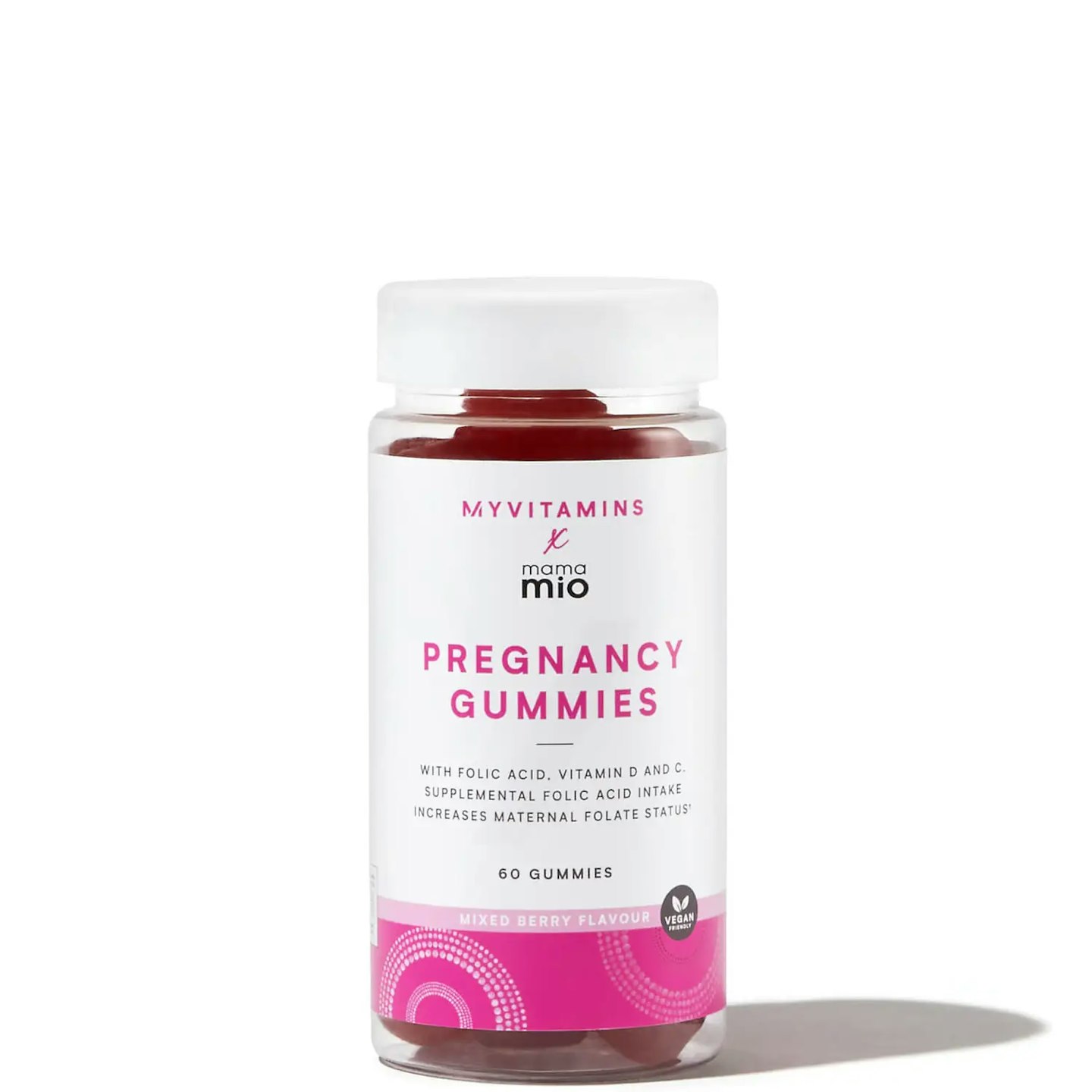 Cult Beauty
Cult Beauty www.cultbeauty.co.uk
Mama Mio Pregnancy Gummies in delicious Mixed Berry flavor make self-care during pregnancy a treat! Packed with essential vitamins like folic acid, biotin, and vitamin D, these chewy delights support your baby’s development while keeping you feeling your best. Who knew taking your vitamins could taste so good? They’re the sweetest way to nourish you and your bump.
Review: "I used these before and during my first pregnancy and am using again trying for baby number two. These were the only gummies on the market that I tried that were vegan and didn't make me feel sick! The taste is really lovely and so easy to take."
Best for foetal growth & development
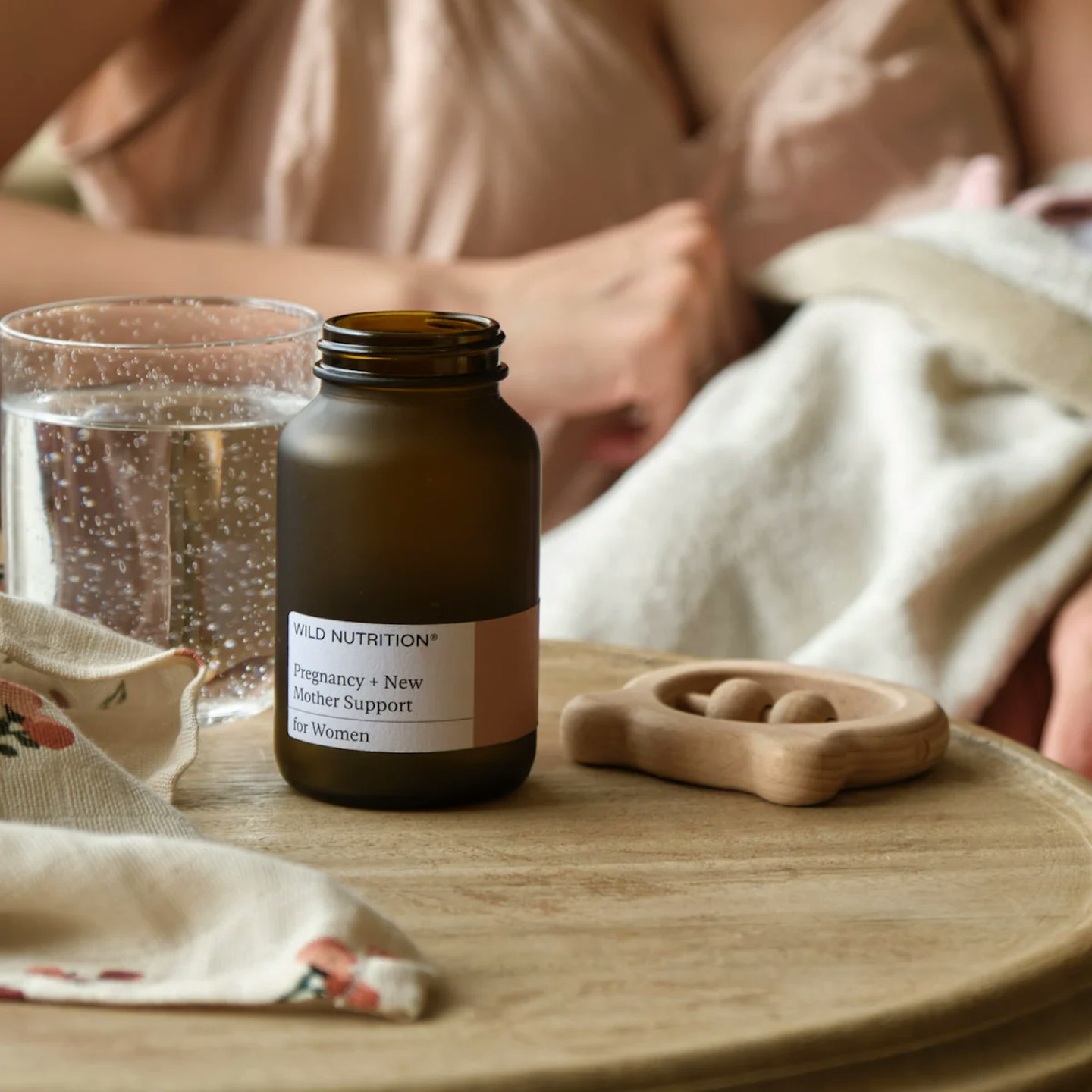 Wild Nutrition
Wild Nutrition A blend of vitamins and minerals, folate, and iron, this pregnancy vitamin gives you the nutritional support for you and your baby, across all trimesters of your pregnancy, including the all-important fourth trimester. Packed with natural, food-grown nutrients like folic acid, iron, and magnesium, it’s designed to support you through pregnancy and beyond. Whether you’re growing a bump or adjusting to new mum life, this supplement has your back, helping you feel strong, energized, and ready to tackle it all.
Review: "Great supplements, and I love that they're food-grown. I'm currently nine weeks pregnant and I've been taking these supplements for the last four weeks, my energy levels feel good and I haven't had any morning sickness yet."
Meet the experts
Lucy Upton, an HCPC registered Specialist Paediatric Dietitian and Nutritionist at the Infant Toddler Forum, an independent, non-profit-making organisation, led by experts in pregnancy and early years nutrition and health.
Lorna Driver-Davies, Wild Nutrition’s Head of Nutrition, is a Clinical Nutritional Therapist with 13 years of experience working with thousands of women. As a women’s hormone and gynaecological nutrition expert, Lorna has successfully supported women through their fertility, pregnancy, and postpartum journeys, and she is passionate about those key life stages in a women's life. Lorna regularly lectures doctors and nutrition practitioners as well as contributing to the media.
A journalist since 2015, Emily Gilbert is the Features & Reviews Editor for Mother&Baby and has written for the website and previously the magazine for seven years. Emily writes about everything from the top baby products to pregnancy, fertility and maternal mental health. Specialising in product reviews, Emily is the first to know about all the exciting new releases in the parenting industry.
